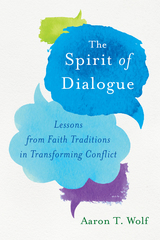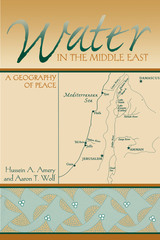
Aaron T. Wolf has spent his career mediating such conflicts, both in the U.S. and around the world. He quickly learned that in negotiations, people are not automatons, programed to defend their positions, but are driven by a complicated set of dynamics—from how comfortable (or uncomfortable) the meeting room is to their deepest senses of self. What approach or system of understanding could possibly untangle all these complexities? Wolf’s answer may be surprising to Westerners who are accustomed to separating religion from science, rationality from spirituality.
Wolf draws lessons from a diversity of faith traditions to transform conflict. True listening, as practiced by Buddhist monks, as opposed to the “active listening” advocated by many mediators, can be the key to calming a colleague’s anger. Alignment with an energy beyond oneself, what Christians would call grace, can change self-righteousness into community concern. Shifting the discussion from one about interests to one about common values—both farmers and environmentalists share the value of love of place—can be the starting point for real dialogue.
As a scientist, Wolf engages religion not for the purpose of dogma but for the practical process of transformation. Whether atheist or fundamentalist, Muslim or Jewish, Quaker or Hindu, any reader involved in difficult dialogue will find concrete steps towards a meeting of souls.

Finding "streams in the desert" has never been more urgent for the peoples of the Middle East. Rapid population growth and a rising standard of living are driving water demand inexorably upward, while the natural supply has not increased since Biblical times. Ensuring a fair and adequate distribution of water in the region is vitally important for building a lasting peace among the nations of the Middle East.
Addressing water needs from a geographical perspective, the contributors to this book analyze and assess the impact of scarce water resources in the Jordan River basin countries and territories (Israel, Jordan, Lebanon, Palestine, and Syria) as these long-time antagonists work toward peace. After geographical and historical overviews, the authors envision the future-what the water issues may be when Israel and Syria begin negotiating, the "hydro-security" needs of each nation, and the difficulties of planning for uncertainty. Without proposing any one ideal scheme, they discuss the possibilities for cooperative sharing of water resources, while honestly acknowledging the political constraints that may limit such projects. The final essay speaks to the needs of the one party so rarely represented at the negotiating table—the Jordan River itself.
READERS
Browse our collection.
PUBLISHERS
See BiblioVault's publisher services.
STUDENT SERVICES
Files for college accessibility offices.
UChicago Accessibility Resources
home | accessibility | search | about | contact us
BiblioVault ® 2001 - 2024
The University of Chicago Press









